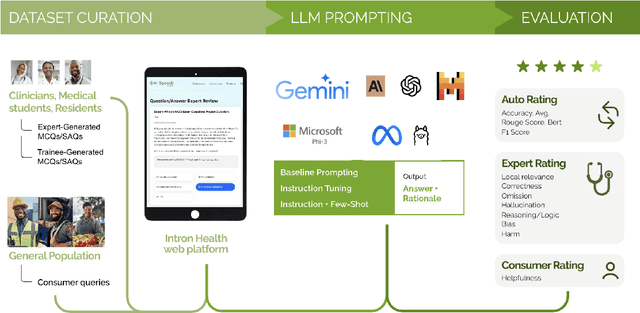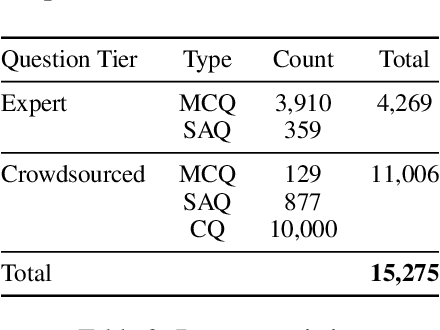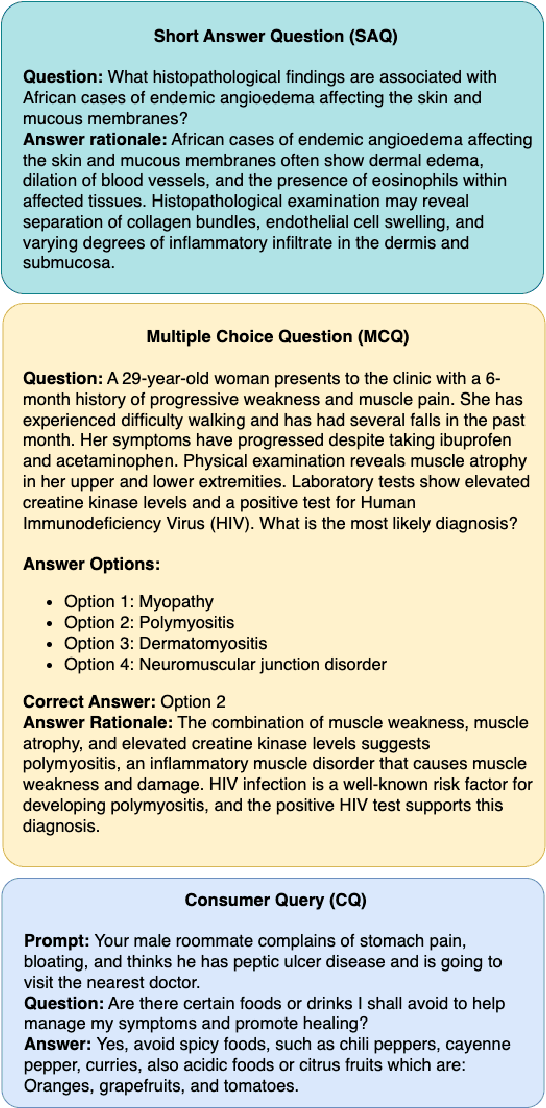Michael Best
AfriMed-QA: A Pan-African, Multi-Specialty, Medical Question-Answering Benchmark Dataset
Nov 23, 2024



Abstract:Recent advancements in large language model(LLM) performance on medical multiple choice question (MCQ) benchmarks have stimulated interest from healthcare providers and patients globally. Particularly in low-and middle-income countries (LMICs) facing acute physician shortages and lack of specialists, LLMs offer a potentially scalable pathway to enhance healthcare access and reduce costs. However, their effectiveness in the Global South, especially across the African continent, remains to be established. In this work, we introduce AfriMed-QA, the first large scale Pan-African English multi-specialty medical Question-Answering (QA) dataset, 15,000 questions (open and closed-ended) sourced from over 60 medical schools across 16 countries, covering 32 medical specialties. We further evaluate 30 LLMs across multiple axes including correctness and demographic bias. Our findings show significant performance variation across specialties and geographies, MCQ performance clearly lags USMLE (MedQA). We find that biomedical LLMs underperform general models and smaller edge-friendly LLMs struggle to achieve a passing score. Interestingly, human evaluations show a consistent consumer preference for LLM answers and explanations when compared with clinician answers.
A Material Lens on Coloniality in NLP
Nov 14, 2023Abstract:Coloniality, the continuation of colonial harms beyond "official" colonization, has pervasive effects across society and scientific fields. Natural Language Processing (NLP) is no exception to this broad phenomenon. In this work, we argue that coloniality is implicitly embedded in and amplified by NLP data, algorithms, and software. We formalize this analysis using Actor-Network Theory (ANT): an approach to understanding social phenomena through the network of relationships between human stakeholders and technology. We use our Actor-Network to guide a quantitative survey of the geography of different phases of NLP research, providing evidence that inequality along colonial boundaries increases as NLP builds on itself. Based on this, we argue that combating coloniality in NLP requires not only changing current values but also active work to remove the accumulation of colonial ideals in our foundational data and algorithms.
 Add to Chrome
Add to Chrome Add to Firefox
Add to Firefox Add to Edge
Add to Edge